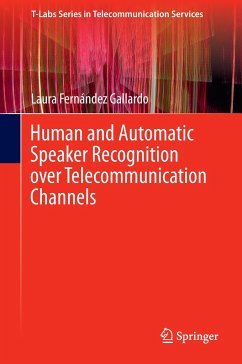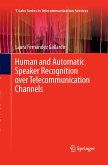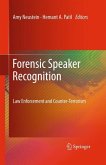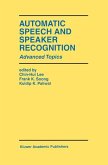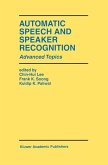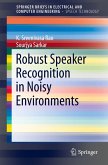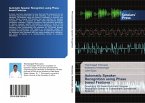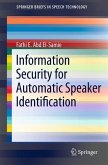This work addresses the evaluation of the human and the automatic speaker recognition performances under different channel distortions caused by bandwidth limitation, codecs, and electro-acoustic user interfaces, among other impairments. Its main contribution is the demonstration of the benefits of communication channels of extended bandwidth, together with an insight into how speaker-specific characteristics of speech are preserved through different transmissions. It provides sufficient motivation for considering speaker recognition as a criterion for the migration from narrowband to enhanced bandwidths, such as wideband and super-wideband.
Bitte wählen Sie Ihr Anliegen aus.
Rechnungen
Retourenschein anfordern
Bestellstatus
Storno

